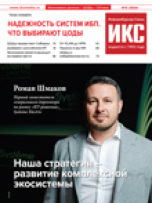| Рубрикатор |  |
 |
| Все новости |  |
World News |  |
 |
EU calls for mobile spectrum sharing
| 04 сентября 2012 |
The European Commission on Monday urged regulatory regimes to catch up with technological advances that enable more efficient use of mobile spectrum.
"If we run out of spectrum then mobile networks and broadband won't work. That is unacceptable," said Neelie Kroes, European digital agenda commissioner. "We must maximise this scarce resource by re-using it and creating a single market out of it," she added."Radio spectrum is economic oxygen," Kroes said.
The European Commission is calling on national regulators to monitor and potentially extend licence-exempt spectrum bands. It also wants to see consistent regulatory approaches across the EU that incentivise the sharing of spectrum and provide legal certainty for those involved in spectrum-sharing.
With "new technologies" a number of users could share the same spectrum, the EU said, using Internet service providers as an example. It also advocates the use of white spaces spectrum.
"National spectrum regulation often does not reflect the new technical possibilities, leaving mobile and broadband users at risk of poor service as demand grows, and preventing a single market for investment in such communications markets," the Commission said in a statement.
"A coordinated European approach to sharing spectrum will lead to greater mobile network capacity, cheaper wireless broadband, and new markets such as tradable secondary rights for a given spectrum allocation," it added.
Monday's proposals comprise the first measure of the Commission's five-year Radio Spectrum Policy Programme, adopted by the European Parliament in February.
Under the programme, by the end of 2012 EU member states should have authorised the use of the harmonised 2.5 GHz-2.69 GHz, 3.4 GHz-3.8 GHz, and 900/1800 MHz bands for mobile broadband. By 1 January 2013 members should have authorised the use of the 800 MHz band for mobile broadband. And by mid-2013 the Commission, in cooperation with member states, pledged to set out the details for an inventory to analyse efficient spectrum use in the 400 MHz to 6 GHz range.
The EU's radio spectrum policy programme is a way of finding coherent and coordinated responses to deal with the fact that current spectrum allocation methods cannot cope with the growing demand on and for spectrum, Kroes said in a blog post.
"Today we launch one of the first initiatives within that programme – a proposal on 'spectrum sharing'," she said. "Today's proposal is an essential part of the solution to dealing with the wireless crunch, without interfering with existing rights or downgrading quality of service, but rather by using new technical possibilities to create a secondary market for spectrum rights."
Источник: Total Telecom















Оставить свой комментарий:
Комментарии по материалу
Данный материал еще не комментировался.